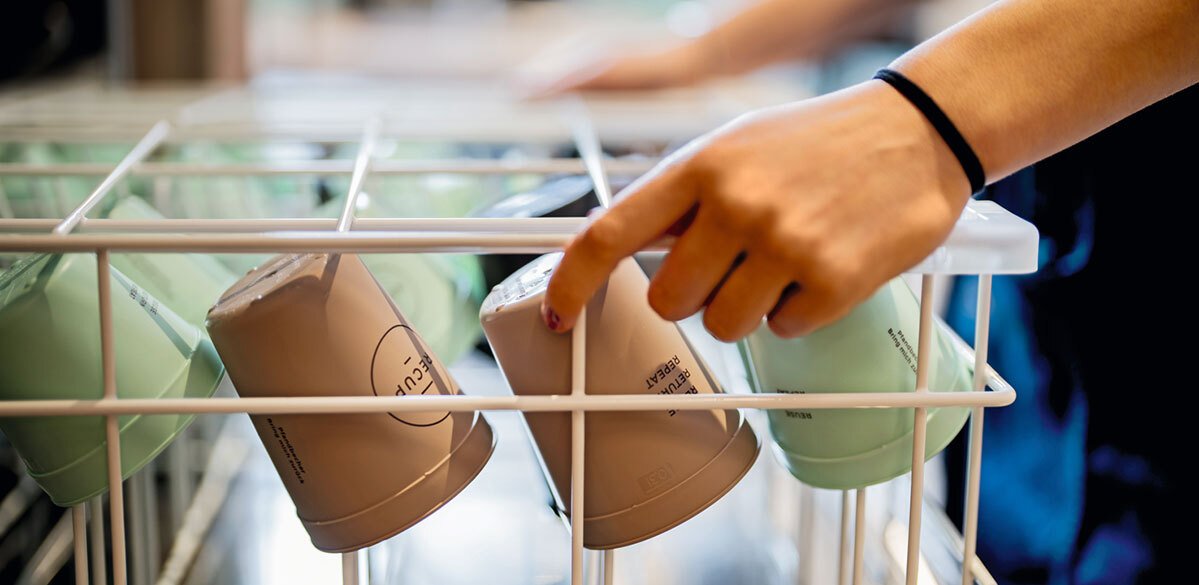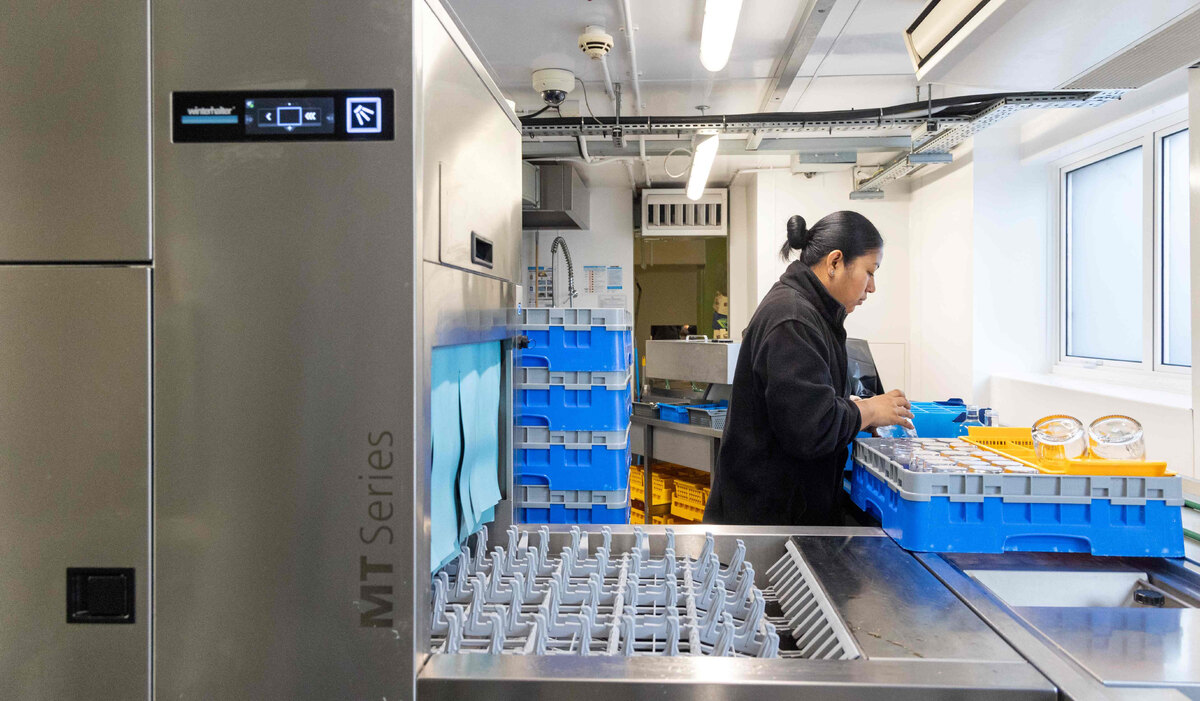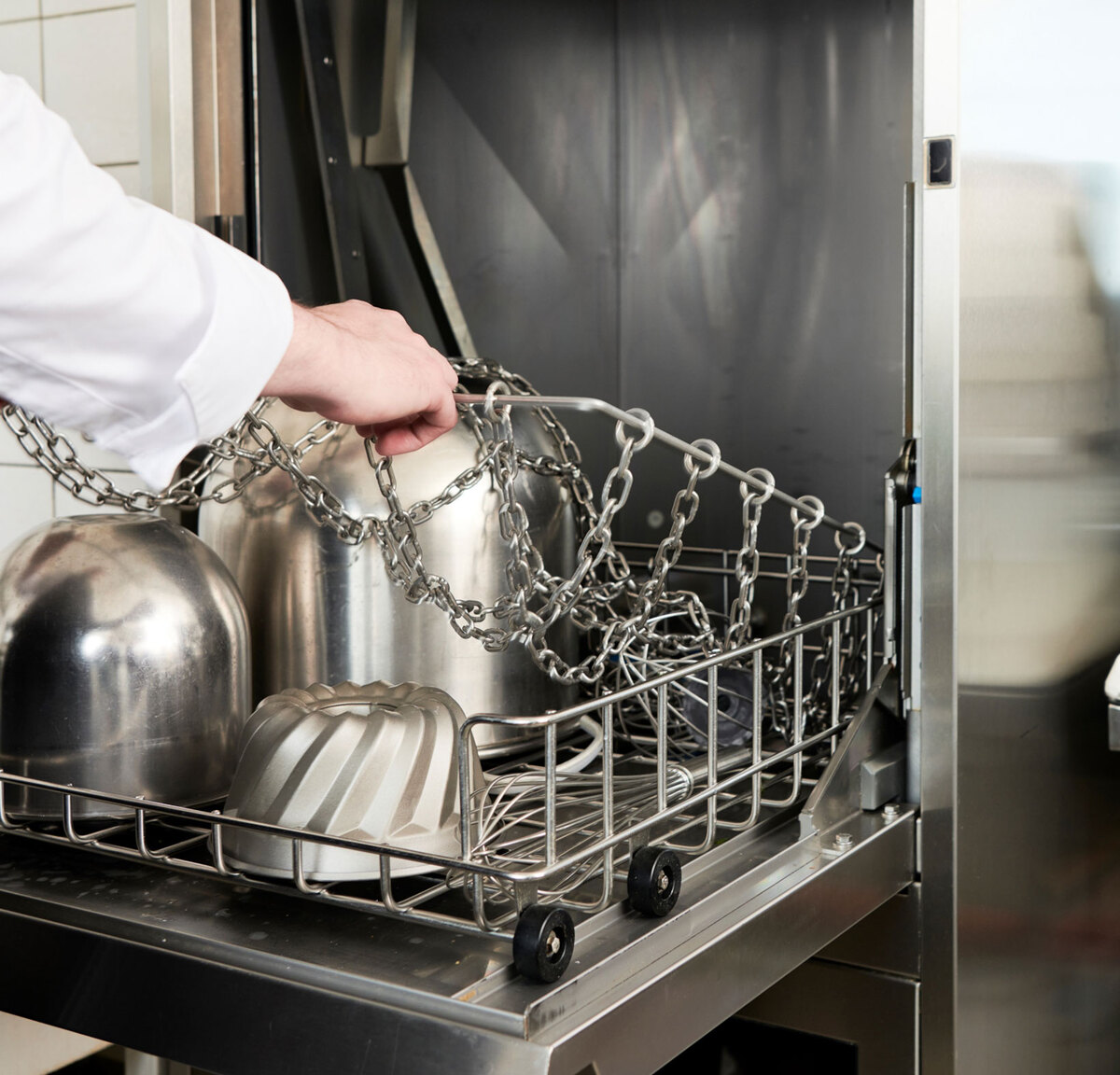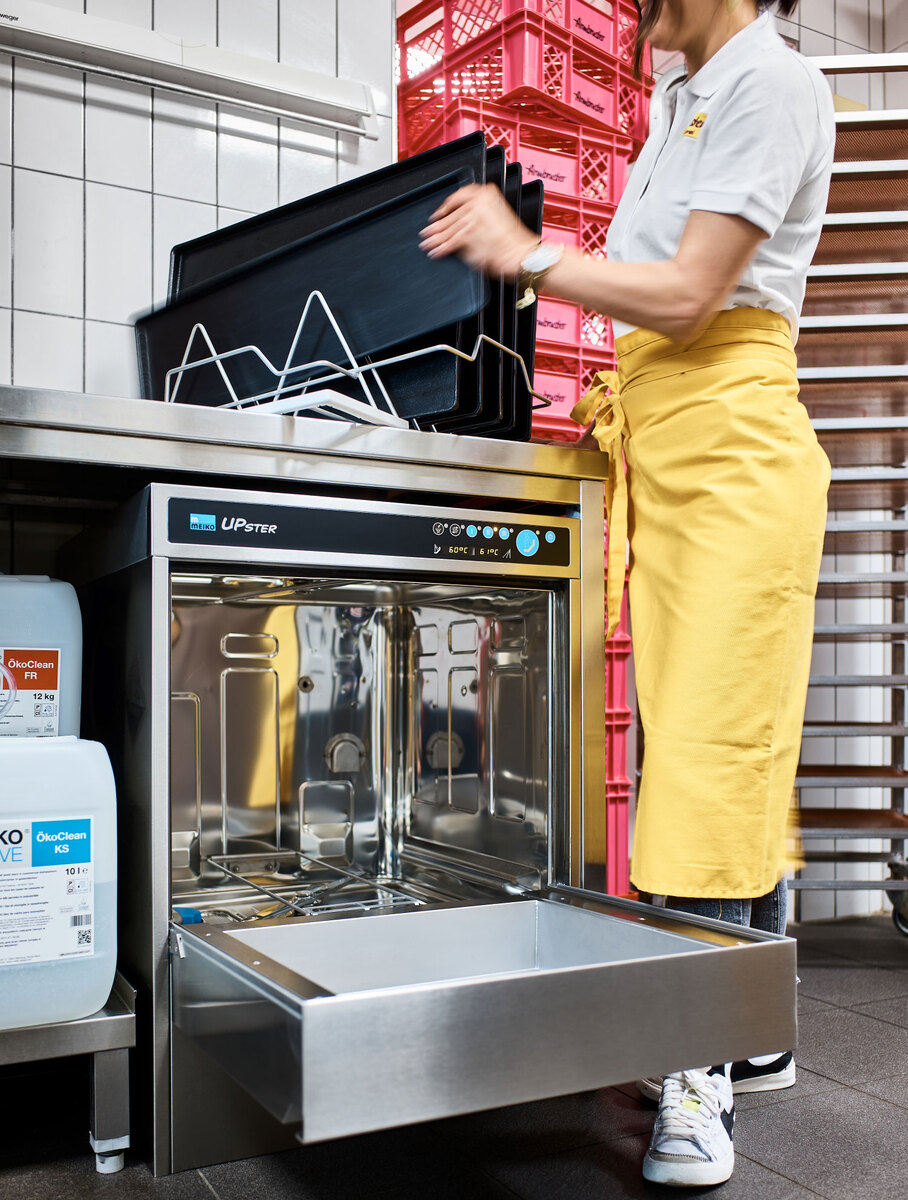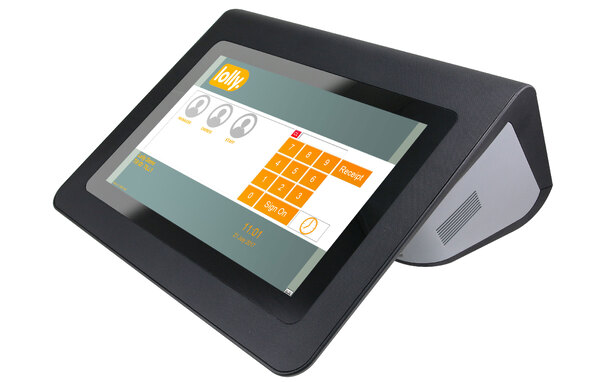6 ways to upgrade your warewasher
There’s no need to sell on your old warewasher – instead, give it a new lease of life with upgrades to make it bigger, faster and more efficient
Operators sometimes don’t have the cashflow to invest in a sparkling new warewasher, but suppliers are coming to the rescue with their latest innovations, which can transform an existing appliance.
From accessories that diversify a warewasher’s capabilities to retrofitted systems that expand its capacity, we take a look at six additions that can help expand a warewasher’s potential.
1. Clean plastic thoroughly and hygienically
Reusables such as bottles, plastic cups and glasses, food storage bowls and containers all need to be washed and stored hygienically.
Meiko is one major manufacturer looking to meet these requirements with its bottle wash adaptor system. This can be used on all Meiko M-iClean UM/UM+ machines from 2009, and can accommodate bottles up to 114mm wide and up to 370mm tall. Meiko’s undercounter machines have a theoretical capacity of 640 bottles an hour, and each bottle rack washes 16 bottles at a time.
Meiko QuickDry can be docked to the M-iClean HM or HL hood-type dishwashing machines to dry plasticware, in combination with rinse aid, racks and water treatment – plus it doesn’t need a separate power supply.
Meanwhile, Winterhalter has also created a plastic washing system that combines racks that hold plastic pieces in position, wash programmes devised specifically for plastics, and specially formulated chemicals for plastics that dry items quickly.
The Winterhalter DMX drying system, used alongside a PT or UC warewasher, can remove residual water from plastics in just two minutes, allowing them to be used or stored immediately.
2. Accessories can improve capacity
Hobart offers a rack insert accessory for its undercounter warewashers that doubles the machine’s capacity in the same single wash cycle, meaning the energy consumption is unchanged. It is designed to simply insert and remove with one hand.
Chris Mansell, warewashing product manager at Hobart UK, says: “It’s a very small outlay but a brilliantly effective opportunity to reduce costs. If an operator stacks the machine correctly, they could, in theory, halve their operating costs – as fewer cycles would naturally reduce labour, water and energy consumption, and servicing and maintenance outlay too.”
Winterhalter also has retrofit solutions for dishwashers at sites that need to use bigger machines where capacity requirements change. The firm’s MT range of high-volume conveyor dishwasher systems are designed to be modular and expandable in situ, allowing for additional tanks and features to be added to existing installations. For example, if a site expands and needs to clean more items quickly, adding a pre-wash unit can help reduce the amount of dirt going into the main wash zone as well as preparing items by pre-heating them before processing.
Meanwhile, a neutral zone between the washing and drying modules helps to reduce rinse water consumption while increasing rack capacity. Corner inlets, conveyors and drying zones also allow the MT to be adapted to fit the available space.
3. Stop pans from getting dented in the wash
Meiko’s new slimline potwasher, the M-iClean PF-S, is available with a novel weighted chain wash rack. The fold-down grid stops lightweight pans and reusable plastics from moving around during the powerful wash cycle.
Plus, the manufacturer’s new UPster XD also features an extended door, which keeps the conventional 500 x 500mm wash rack but can now handle a wider variety of items for washing, such as baking trays and Euro crate food delivery boxes up to 600mm long. The extended door also means the machine can wash a mix of crockery, cutlery, glassware, pans and utensils.
4. Add some polish
Hobart has developed what it says is the first undercounter dishwasher that makes manual polishing obsolete. The cutlery premium option can provide stain-free, shiny cutlery without the need for manual polishing, resulting in up to 50% labour savings and improved hygiene during the drying process, giving front of house teams more time to focus on their customers.
5. Bring colour to the kitchen
It’s not just functional options that operators need to consider when updating their warewashers. To make an appliance fit in with a site’s style, Nelson has introduced a ColourWash option, which allows full customisation of exterior panels on the company’s Advantage range of dishwashers and glasswashers, sprayed to any RAL or Pantone colour in either a gloss or matt finish. All panels are primed and then painted with two coats of colour and then the gloss or matte layer is added, which protects the machine from knocks and scratches.
Managing director John Nelson says: “It means operators can move away from the obligatory, clinical look of stainless steel and instead tailor their equipment to complement or contrast with their interior schemes.”

Fagor
6. Go digital
Fagor’s new warewash range comes with the FagorKonnect Internet of Things (IoT) solution. This allows operators to monitor and manage their warewashing operations remotely to achieve optimal performance and efficiency. Operators can track usage data, receive real-time alerts and schedule maintenance from a smartphone or tablet, giving better control over kitchen operations, reduced downtime, and the ability to quickly address any issues that arise – helping to keep businesses running smoothly.
Suppliers
Fagor www.fagorprofessional.com
Hobart www.hobartuk.com
Meiko www.meiko-uk.co.uk
Nelson nelsonwashonline.co.uk
Winterhalter www.winterhalter.com/uk









